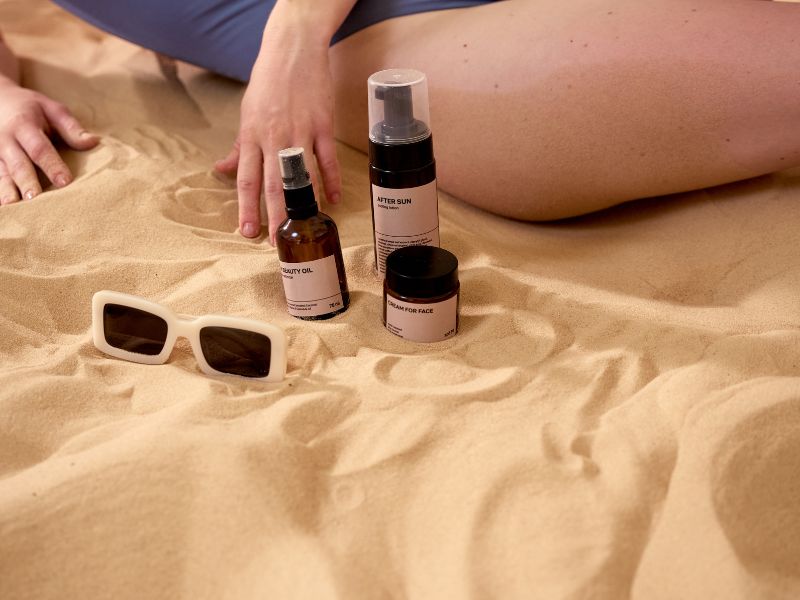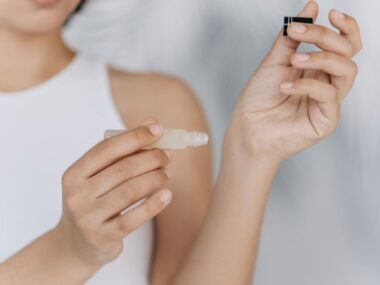Sunscreen has become an essential part of skincare for anyone aiming to protect their skin from harmful UV rays. But as awareness of environmental impact grows, there’s increasing scrutiny over sunscreen ingredients and their effects on marine ecosystems. Specifically, there’s rising interest in reef-safe sunscreens—those that offer sun protection while minimizing harm to coral reefs and marine life. With many skincare companies now producing reef-safe options, consumers have a wider range to choose from than ever before. This article dives into the concept of reef-safe sunscreen, its importance, and where to buy it, providing insights into the best options available and guidance on making environmentally-friendly choices.
Understanding Reef-Safe Sunscreen
Reef-safe sunscreen is specially formulated to avoid harmful ingredients that threaten coral reefs and marine ecosystems. Traditional sunscreens often contain chemicals like oxybenzone and octinoxate, which research has shown can contribute to coral bleaching and disrupt marine life. Reef-safe sunscreens, on the other hand, are formulated without these ingredients, opting for mineral-based UV blockers instead, typically zinc oxide and titanium dioxide. Unlike chemical sunscreens, which absorb UV rays, mineral sunscreens act as a physical barrier, reflecting UV rays away from the skin.
These products benefit not only the environment but also your skin. Mineral sunscreens are generally less irritating for sensitive skin and offer broad-spectrum protection. They are typically formulated to stay on the skin’s surface, reducing the likelihood of causing skin allergies or disrupting hormones.
The Importance of Choosing Reef-Safe Sunscreen
Coral reefs, often described as the “rainforests of the sea,” support an estimated 25% of marine species despite covering less than 1% of the ocean floor. They play a critical role in marine biodiversity, protect coastlines from erosion, and contribute significantly to global oxygen production. Unfortunately, coral reefs are under threat from climate change, pollution, and chemical exposure. The estimated 14,000 tons of sunscreen that wash into the oceans annually add to this stress, accelerating coral bleaching and reducing coral resilience.
When certain chemicals, such as oxybenzone and octinoxate, are introduced to marine environments, they can make coral reefs more susceptible to viral infections, disrupt reproduction cycles in fish, and have other devastating impacts on marine ecosystems. As a result, popular travel destinations like Hawaii, Palau, and Key West have enacted bans on sunscreens containing these harmful ingredients. Choosing reef-safe sunscreen supports these efforts and contributes to a healthier planet.
Key Ingredients to Look for in Reef-Safe Sunscreens
When selecting a reef-safe sunscreen, it’s essential to understand the ingredient list. Here are some factors to consider:
- Zinc Oxide and Titanium Dioxide: These are the only two active ingredients in FDA-approved mineral sunscreens. They sit on the skin’s surface, creating a physical barrier against UV rays. Zinc oxide, in particular, offers broad-spectrum protection.
- Non-Nano Formulation: Non-nano zinc oxide and titanium dioxide particles are large enough to stay on the skin rather than being absorbed into the bloodstream or washed off into the ocean.
- Avoid Harmful Additives: In addition to oxybenzone and octinoxate, avoid parabens, synthetic fragrances, and other harsh chemicals that can be harmful to both human and environmental health.
Where Can I Buy Reef Safe Sunscreen?
With the growing demand for eco-friendly skincare, many physical and online stores offer reef-safe sunscreen options. Below are some recommended places to find reef-safe sunscreens, whether you’re looking for convenience, variety, or specific brands.
1. Health and Organic Stores
Natural grocery stores and health food stores are excellent places to find reef-safe sunscreens. Chains like Whole Foods, Trader Joe’s, and Sprouts Market often stock eco-friendly and reef-safe skincare products from popular brands like Sun Bum, Badger, and Raw Elements. Health stores typically have staff knowledgeable about the products and their environmental impact, making it easier to find a sunscreen that suits your needs.
2. Pharmacies and Big-Box Retailers
Major retailers like Walgreens, CVS, Target, and Walmart are increasingly stocking reef-safe sunscreens due to rising consumer demand. Many of these stores carry popular mineral-based brands, including Neutrogena Sheer Zinc, Blue Lizard, and Coppertone Pure & Simple, which meet reef-safe standards. Additionally, big-box stores often offer a range of sizes, from travel-friendly to family-sized, providing flexibility for different uses and budgets.
3. Online Marketplaces
Online shopping is a convenient option for those who prefer browsing a wider selection. Websites like Amazon, Thrive Market, and iHerb offer a vast range of reef-safe sunscreens. Amazon, in particular, carries products from well-known brands like Thinksport, All Good, and Alba Botanica, along with customer reviews to help guide purchasing decisions. Additionally, many online marketplaces feature speciality sunscreens suited for children, athletes, and sensitive skin, broadening the selection beyond what may be available locally.
4. Specialty Skincare Websites
Many skincare brands that focus on environmentally conscious products have dedicated e-commerce sites. Websites like Sun Bum, Coola, and Badger allow customers to shop directly from the brand, often providing detailed information on their environmental initiatives, ingredient sourcing, and product benefits. Shopping directly from the brand can also give access to exclusive products, subscription options, and discounts.
5. Outdoor and Adventure Retailers
Stores like REI, Patagonia, and Surf shops often carry reef-safe sunscreen, catering to customers who prioritize outdoor activities like hiking, surfing, and diving. These retailers usually stock durable, water-resistant products from brands such as Stream2Sea, Raw Elements, and Thinksport. These sunscreens are specifically formulated for outdoor enthusiasts and are generally more resistant to water and sweat, making them ideal for extended outdoor use.
Recommended Reef-Safe Sunscreen Brands
Several brands have emerged as leaders in producing reef-safe sunscreens. Here are a few that stand out in terms of effectiveness, ingredient quality, and environmental commitment:
- Badger: Badger sunscreens use a high percentage of organic ingredients and non-nano zinc oxide, offering gentle protection suitable for all skin types, including babies. Their formulas are water-resistant, biodegradable, and certified cruelty-free.
- ThinkSport: ThinkSport and its kid-focused ThinkBaby line are popular for their effective, mineral-based formulas that avoid harmful chemicals. Their sunscreens are especially known for withstanding sweat and water exposure, making them ideal for active outdoor activities.
- Raw Elements: Raw Elements produces reef-safe sunscreens with eco-conscious packaging and a high SPF rating, catering to those who seek robust sun protection. Their formulas are non-GMO, cruelty-free, and biodegradable.
- Stream2Sea: Stream2Sea is designed with the environment in mind, featuring biodegradable packaging and non-toxic ingredients tested for coral reef safety. Their sunscreens are water-resistant and available in a range of SPF levels.
- All Good: All Good is known for its organic, reef-safe sunscreens that come in a variety of forms, including sprays, sticks, and lotions. Their ingredients are certified organic, and they use sustainable practices in manufacturing.
Tips for Buying Reef-Safe Sunscreen
Finding the right reef-safe sunscreen can take some research, especially with many products now claiming to be environmentally friendly. Here are some tips to ensure you’re purchasing a genuinely reef-safe sunscreen:
- Read Labels Carefully: Look for sunscreens that explicitly state they are “reef-safe” or “reef-friendly.” Ensure that they are free from oxybenzone and octinoxate, and ideally choose products that use non-nano zinc oxide or titanium dioxide.
- Check for Certification Seals: Certifications from third-party organizations, such as the Environmental Working Group (EWG), indicate that a product has passed rigorous testing for safety and environmental impact.
- Research the Brand’s Environmental Policies: Some brands may offer detailed information on their website about their commitment to sustainability. Look for companies that disclose ingredient sourcing, use recyclable or biodegradable packaging, and minimize their carbon footprint.
- Opt for Water-Resistant Options When Necessary: If you’re planning to swim, dive, or engage in water sports, look for a water-resistant reef-safe sunscreen that stays on the skin longer, minimizing the amount washed off into the water.
The Cost of Reef-Safe Sunscreen
Reef-safe sunscreens are often more expensive than conventional sunscreens due to higher ingredient quality and eco-conscious production processes. However, the cost is offset by the peace of mind of knowing you’re helping protect marine ecosystems. Many reef-safe sunscreens also tend to last longer, as their water resistance allows them to remain effective through sweat and exposure.
To maximize value, look for sales, and bulk options, or consider subscription services offered by brands that deliver products at a discount. Many companies also offer smaller, travel-sized products, which are budget-friendly options to start exploring reef-safe sunscreens.
Conclusion: A Small Change for Big Impact
Switching to reef-safe sunscreen is a small but impactful choice that supports ocean conservation and protects sensitive skin. As awareness of environmental sustainability grows, reef-safe sunscreens have become increasingly accessible and varied, with options for every skin type, activity level, and budget. By purchasing reef-safe sunscreen, you’re not only protecting yourself from harmful UV rays but also contributing to the preservation of fragile coral reefs and marine biodiversity.
Whether you’re shopping at a local pharmacy, a speciality store, or online, reef-safe sunscreen is readily available and worth the investment for both your health and the planet’s well-being.






